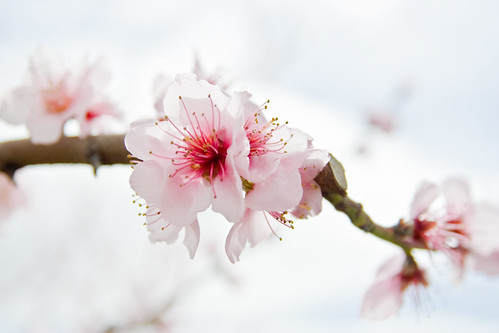
According to Wikipedia, YouTube was created in 2005 and is “a video sharing website where users can upload, view and share video clips”. YouTube is free and very easy to use. You can search for every sort of videos just by tapping tags in the ‘search’ bar; most of the videos are available also for unregistered users. You can also see is the file you want to watch is worth attention by looking at its rating and reading though the several comments people wrote.
I think that YouTube is a fantastic tool since you can find videos dealing with every topic and for every purpose you want. I knew YouTube even before Sarah introduced it to us; I used it mainly to find funny videos, but I never thought about it as a learning tool! Thanks to Sarah, I discovered that in YouTube you can find interesting videos that can teach you how to do several things. I think that the next time I want to learn something more about how using computers I will look for a good YouTube video! LOL! Since many files are in English, you can also improve your English listening skill, your vocabulary, and your pronunciation. Great!
YouTube can be useful for teachers too; they can find interesting videos that can be used in order to teach in a different and more involving way some subjects that students often consider boring. In TeacherTube I found some good video files that deal with several topics, such as physics, mathematics, informatics, and that can be an effective support when teaching.
In YouTube you can find also funny videos; Sarah suggested us two files which I find brilliant! When I saw the one about the translator I couldn’t stop laughing! The second one was a satiric video that parodied Bush’s foreign policy and the sad situation in Iraq. I particularly appreciated the puns such as I-rack/Iraq and I-ran/Iran, or the double meaning of some words, such as ‘rack’.
YouTube, however, has also negative aspects. Since everyone can add his/her own video, you may find some files that aren’t good; information conveyed could be inexact, language can be used improperly, and both comment and videos can be full of grammatical mistakes or vulgar.
In conclusion, I think that YouTube is an excellent tool in order to find audio and video files dealing with several topics, but people should be aware that they can find both good and bad stuff. As a matter of fact, teachers should control the videos they want to employ as teaching material before using it.
I think that YouTube is a fantastic tool since you can find videos dealing with every topic and for every purpose you want. I knew YouTube even before Sarah introduced it to us; I used it mainly to find funny videos, but I never thought about it as a learning tool! Thanks to Sarah, I discovered that in YouTube you can find interesting videos that can teach you how to do several things. I think that the next time I want to learn something more about how using computers I will look for a good YouTube video! LOL! Since many files are in English, you can also improve your English listening skill, your vocabulary, and your pronunciation. Great!
YouTube can be useful for teachers too; they can find interesting videos that can be used in order to teach in a different and more involving way some subjects that students often consider boring. In TeacherTube I found some good video files that deal with several topics, such as physics, mathematics, informatics, and that can be an effective support when teaching.
In YouTube you can find also funny videos; Sarah suggested us two files which I find brilliant! When I saw the one about the translator I couldn’t stop laughing! The second one was a satiric video that parodied Bush’s foreign policy and the sad situation in Iraq. I particularly appreciated the puns such as I-rack/Iraq and I-ran/Iran, or the double meaning of some words, such as ‘rack’.
YouTube, however, has also negative aspects. Since everyone can add his/her own video, you may find some files that aren’t good; information conveyed could be inexact, language can be used improperly, and both comment and videos can be full of grammatical mistakes or vulgar.
In conclusion, I think that YouTube is an excellent tool in order to find audio and video files dealing with several topics, but people should be aware that they can find both good and bad stuff. As a matter of fact, teachers should control the videos they want to employ as teaching material before using it.
What do you think?
Veronica







5 commenti:
Hi Veronica!
I do agree with you when you say that ‘YouTube is an excellent tool in order to find audio and video files dealing with several topics, but people should be aware that they can find both good and bad stuff.’
As you said, ‘teachers should control the videos they want to employ as teaching material before using it’; however, in my opinion, teachers should not prevent students from watching other kind of videos. Teachers should be aware of what is helpful for English learning and what is not, but students should feel free of exploring the web in order to develop a critical outlook towards technologies.
Obviously, the Web 2.0. is not completely bad or good, students must learn how to use it properly. What do you think about it?In my opinion, teachers must give their students the tool and the advice in order to enable them to exploit the Web 2.0. resources the right way.
As I wrote to Silvia, the problem is very complex and I think that it’s not very useful to use censorship. If you impose someone a limit, he/she will feel authorize to violate it (especially when we think about young students). So maybe, we should teach them how to critically skim what is good and what is bad, rather than prevent them from watching or listening to something. Do you agree with me or not?
Thank you for your good contribution!
Marty
Hi Veronica,
I've just read your post.I agree with you when you say: "I think that YouTube is a fantastic tool since you can find videos dealing with every topic". It's incredible: this site contains a enormous amount of videos!
Moreover, it can be of great use when it comes to improve your listening skills and pronunciation.
However, I was really impressed by the fact that many videos are vulgar; therefore, as I wrote on my post, I think that teachers should decide what their students should watch. It could be too risky to let them alone surfing on YouTube, if they are very young. As far as university students are concerned, I think that YouTube can be a very funny way to learn English.
Generally speaking, university students are mature and have already developed their critical sense... On the other hand, younger students can be easily fascinated by this web site and get lost in it, watching bad and vulgar videos.. So, I'm sorry, I don't agree with Martina. It's not a matter of censorship.The problem is that students of primary or secondary school are too young to distinguish between what is worth watching and what is not. I mean, how can you teach to a 7 year-old-boy to "skim what is good and what is bad"? Certainly they will be curious, and they will watch some videos which can impress or terrify them (e.g. about Iraq war, terrorism ).Therefore, the best solution is to download what you want to use in class and let students watch it!
see you then
Silvia
Hi Veronica!
Great job indeed! I liked it very much since you did manage to clearly point out both advantages and disadvantages of YouTube as a language learning tool! What’s more, I completely agree with you: it can be of help to “improve your English listening skill, your vocabulary, and your pronunciation.”
I love your way of writing; you always focus on the main ideas and support them with very strong reasoning. That’s particularly evident in this post when you listed the reasons why YouTube is not so good. As a matter of fact, you’re right when you say that it can contain incorrect data, language can be inappropriate and vulgar, or comments and videos can be grammatically inaccurate.
Given the content and the language of most videos, it’s mainly a tool for advanced language learners, or else students should use it only under their teacher’s supervision. It’s such an appealing and unusual way to teach English that I’m sure students would love it, but it’s dangerous too, as Silvia and you have already stressed. I think Martina’s words “teachers should not prevent students from watching other kind of videos”; “students should feel free of exploring the web in order to develop a critical outlook towards technologies” are true only with reference to adult students like us. Do you agree?
Anyway, your post is really well written and clear; I cannot find any grammar mistakes; I just noticed two or three slips of the pen:
- “You can also see (is) IF the file you want to watch is worth YOUR attention by looking at its rating and reading thRough the several comments people wrote.
- “how (using) TO USE computers”
Just a tip: when you speak about the activities we do during our English course with Sarah, I suggest you to make some links to them, so that any person who visits your blog (not only your class mates) can understand what you’re talking about! We’re not used to thinking that what we write is public and can be read by anyone in the world! So it’s normal that we sometimes forget it ;-)
See you soon!
Elena
Hi Veronica!
First of all, I always like the fact that you use different colours in your posts; they're very lively! :-)
As for what you've written, I definitely agree with everything you wrote. Like you, I had never thought about YouTube as a learning tool. When I read that Sarah asked us if it could help us in learning English, I was quite sceptical. But then, if you think of it, it can be useful for advanced learners in watching videos with everyday life. And in YouTube you can find almost everything! Even if you wish to learn Latin American dance! ;-)
I agree also with your opinion of TeacherTube, when you say that it can be "an effective support when teaching". I saw a video that explained the different advantages of making youg students create their own blogs!
However, as you said, if a teacher wants to show YouTube videos to his/her students, a detailed control has to be made, most of all if they're very young.
As for peer reviewing, I saw that Elena has already written everything. Just one tip: when you wrote "Every sort of videos" I think it's better if you say "video".
Hope it can help! :-)
Marina
Hi Veronica!
Today I'm the last one commenting your post, so that there is not much left to me to say!
I agree with most of the things my peers said, and I believe that YouTube can be a good source for listening materials if used properly!
I really appreciate your post, it is well-written and clear, and you tried to discuss the matter pointing out arguments both for and against!
As for peer-reviewing, check this sentence out: "I think that the next time I want to learn something more about how using computers I will look for a good YouTube video."
In my opinion there's something wrong with it!
See you soon!
Camilla
Posta un commento